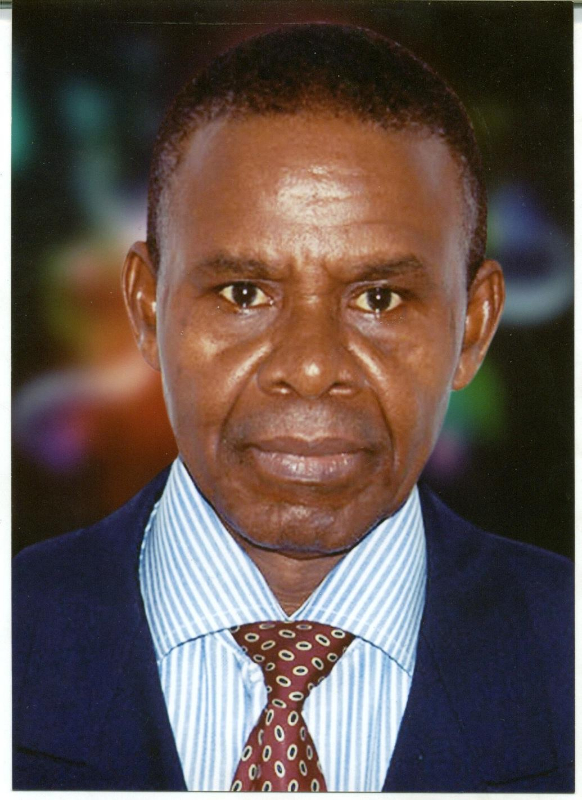

Mr. Nwafor
BY CHIMA NWAFO
No doubt, last Monday being April 22, in characteristic Naija tradition, the 49th Anniversary of the Earth Day 2019 was celebrated by various environmental groups. As usual, speeches were made after which statements were issued to an uncaring public and nonchallant government. Among them the Coalition of NGOs on Sustainable and Healthy Environment, which called on the Federal Government to go beyond endorsement and begin to honour environmental treaties signed over time. Another urged the media to educate the public as well as help create awareness on environmental issues. But the Environmental Rights Action/Friends of the Earth Nigeria (ERA/FoFN) took the opportunity to commend the Senate for “adopting a bill to ban gas flaring.”
But the question prompts: Should we praise the Senate for adopting a bill to ban gas flaring, after 20 years of return to representative democracy, during which several million barrels of oil have been spilled with attendant destruction of farm lands and aquatic life; and several deadlines for ending gas flare dishonoured with impunity by the NNPC and its joint-venture partners? Recall that gas flare has been with oil-bearing communities since the mid-1950s. Same Senate saw no virtue in Senator Ben Murray-Bruce’s proposed Electric Car Bill, which basically sought approval of the use of electric cars in Nigeria in a future date. The objectives of the bill were: to: (a) comply with the clean energy policy, (b) encourage the use of modern technology, (c) de-emphasise oil consumption, (d) reduce air pollution. Yet, there millions of out-dated and dilapidated auto contraptions plying our roads in crowded city roads nation-wide.
It is against the foregoing background that I am addressing this piece to the National Assembly, as part of my observance of the Earthy Day. For a fruitful and ennobling trip to 1970, when the environmental niche was embedded in the annals of world history, Kate Yoder of City Lab will be our guide.

Monday April 22 was the 49th anniversary of the grandiose and historic gathering of millions of Americans in various United States cities, colleges as well as primary schools in 1970, to demonstrate and promote environmental awareness and calls for the protection of our planet. Through the initiative of one Democratic Party Senator, the whole country was galvanized to rise up in protest. And again, unlike Nigeria, it was a united action comprising students, adults, activists, legislators, public servants and workers, including the President and his wife who planted a tree to mark the occasion in the White House. Today, in the civilized world, the pattern has not altered.
Because such events are usually as a proclamation of the United Nations, it is important to show that Earth Day is not one. As environmental historians pointed out, even though in 1969 at a UNESCO Conference in San Francisco, Peace Activist John McConnell had proposed a day to honour the Earth and the concept of peace, to first be celebrated on March 21, 1970. “This day of nature’s equipoise was later sanctioned in a proclamation written by McConnell and signed by Secretary-General U Thant at the United Nations. A month later, a separate Earth Day was founded by United States’ Senator Gaylord Nelson, with the cooperation of other concerned individuals.”
Investigations revealed that the first Earth Day celebrations took place in 2,000 colleges and universities, “roughly 10, 000 primary and secondary schools, and hundreds of communities across the United States.” That is not all. It brought out unprecedented 20 million Americans out into the spring sunshine for peaceful demonstrations in favour of environmental reform. To date, this figure has not been matched. According to Earth Day Network, a non-profit, which organises the event, it is now observed in 193 countries chaired by the first Earth Day 1970 organiser, Denis Hayes. A politician’s initiative galavanised activists and other professionals to achieve a common interest.
Why did it turn out such a huge success?
The reason is not far-fetched as the organiser pointed out that the initiator, “Senator Gaylord Nelson, from Wisconsin, was inspired to create Earth Day upon seeing Santa Barbara Channel 800 square-mile oil slick from an airplane: ‘On January 28, 1969, a well drilled by Union Oil Platform A off the coast of Santa Barbara, California, blew out. More than three million gallons of oil spewed, killing over 10,000 seabirds, dolphins, seals, and sea lions. As a reaction to this disaster, activists were mobilized to create environmental regulation, environmental education. Among the proponents of Earth Day were the people in the front lines of fighting this disaster.'”

Being a reading society, the politician naturally authored a book chronicling the events as they occurred. “Senator Gaylord Nelson wrote in his 2002 book, Beyond Earth Day, my thinking was not that a one-day demonstration would convince people of the need to protect the environment. I envisioned a continuing national drive to clean up our environment and set new priorities for a livable America. Earth Day was to be the catalyst.” That is patriotism: completely selfless.
And according to Adam Rome who had earlier authored a book, The Genius of Earth Day, “he originally would have been happy if a few colleges or universities joined. He had no idea that it was going to explode into the consciousness of the nation.
“Another reason Earth Day 1970 was so powerful is that it brought together the power of the establishment and the energy and boldness of the grassroots. Nelson was a seasoned senator in his 50s. But the committee who brought his idea to life was largely made up of students and civil-rights organizers.”

Distinguished Senators of the Federal Republic, besides the foregoing details which are self-explanatory, please note the following: Both elites and masses were involved; lecturers and students; men and women; Democrats and Republicans; the Mayor of New York did not only support, he made halls available for the organisers; Senators gave speeches from their respective states and cities. And next to its by-partisan nature is the fact that then initiator who was touched by the oil spill is not even from a neighbouring state. That is unity of purpose driven by love of country devoid of parochialism of any sort.
For example, “one week later, President Richard Nixon’s advisers recommended he establish what became the Environmental Protection Agency. The decade that followed also gave us 28 major federal environmental laws, including the Clean Water Act and the Endangered Species Act. Before these laws, thick smog dimmed many U.S. cities in the middle of the day. Nelson was later awarded the Presidential Medal of Freedom award in recognition of his work.”
Again, recall that President Richard Nixon was a Republican whereas Senator Gaylord was a Democrat. They are all committed to the health of Americans, irrespective of party, religion or class.
They reasoned: “The unprecedented global destruction and rapid reduction of plant and wildlife populations are directly linked to causes driven by human activity: climate change, deforestation, habitat loss, trafficking and poaching, unsustainable agriculture, pollution and pesticides to name a few. The impacts are far reaching.”
Is our case different? From Niger Delta to Lagos, Anambra to Bornu, Ondo to Sokoto: the nation is ravaged by various form of environmental degradation. One then shall one senator think beyond pecuniary interest and consider the public, for all parties to unite on at least one issue of national importance.
*Nwafo, Environmental/Public Affairs Analyst, can be reached on: [email protected]; +2348029334754.
Share
your story or I Witness Reports with us 24/7 via: SMS: +234 (0)9076248001
Whatsapp: +234(0)8072022024, Email: [email protected]
Website: www.gatmash.com
For advert placement, contact us today via email: [email protected] or call our hotlines on Tel: +234(0)8072022024, 08166622444, 09076248001





